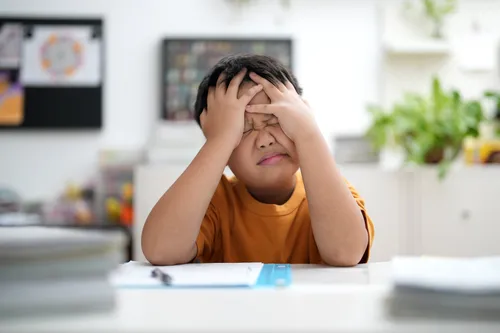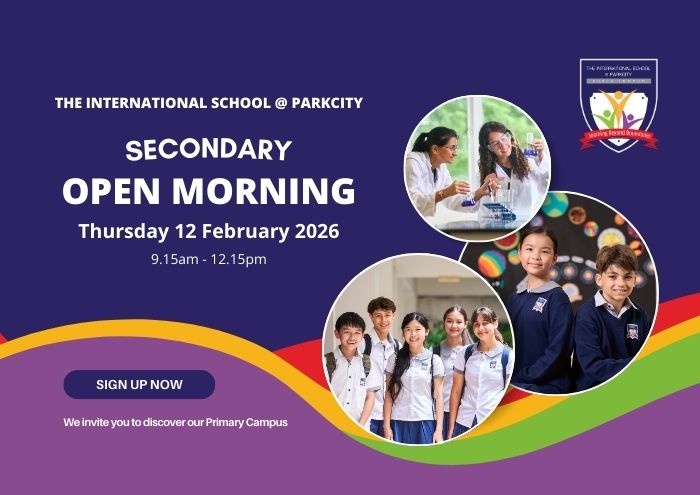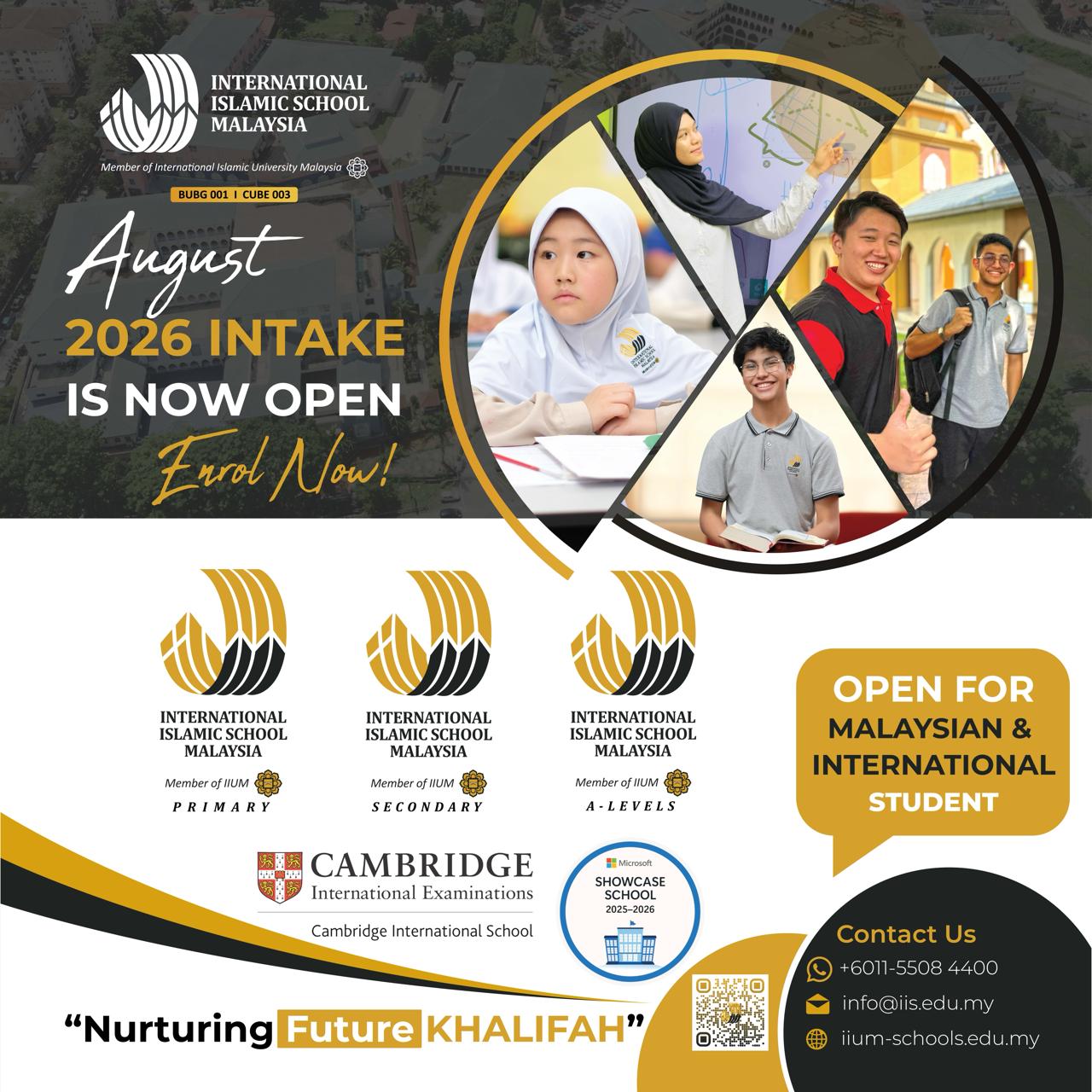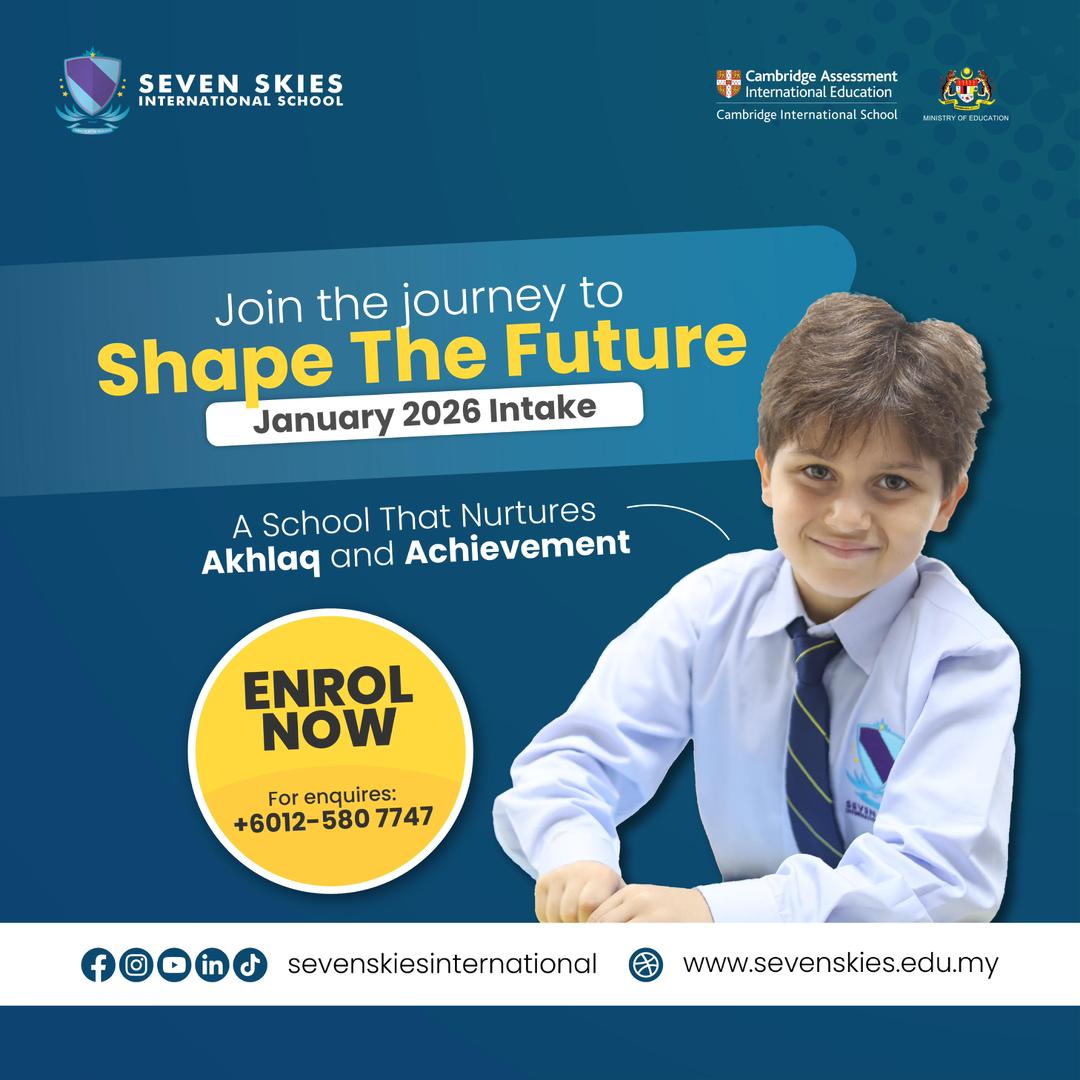In an era marked by rapid technological advancement and globalisation, education must evolve to meet the changing needs of students. The concept of redefining education for a smarter generation lies at the heart of this transformative journey.
Recently, Education Destination Malaysia had the privilege of engaging in a thought-provoking interview with Mr Djohann Iskandar Kwan Abdullah, the principal of Seven Skies International School, a school enthusiastically embracing this concept.
In this article, we delve into the insights shared, exploring how they are striving to build a brighter future in education by adapting their approach to align with the ever-evolving demands of the modern world.

The Concept
Redefining education for a smarter generation is about adapting our approach to align with the ever-evolving demands of the modern world. It means going beyond rote learning and standardised testing to cultivate and prioritise critical thinking, creativity, adaptability and digital literacy among other skills. According to Mr Djohann, this shift involves implementing project-based learning, where students work on a termly or even year-long project tackling real-world challenges like reducing plastic waste in their communities.
When asked what inspired them to adopt this concept, Mr Djohann pointed out that as the job market continues to evolve in significant ways, the school recognises the importance of equipping students with skills and knowledge that transcend traditional education. This also motivated them to empower students to thrive in the 21st century and beyond.

Meaning of a Smarter Generation
A “smarter generation” is made up of much more than just academically qualified individuals. According to Mr Djohann, it comprises students who also possess essential life skills, emotional intelligence, and a global perspective. They are innovative, resilient and well-equipped to navigate the challenges and opportunities presented by the digital age.
Traditional education models often prioritise rote learning and standardised testing, and in so doing fall short in preparing students for the demands of today’s world. Mr Djohann and his team firmly believe that education must be redefined to foster continuous learning, problem-solving and collaboration. In their view, a dynamic and relevant approach is imperative.

Challenges Faced
The path to redefining education is not without its challenges. Resistance to change, resource limitations, and varying levels of readiness among educators and students are some of the challenges faced. Mr Djohann highlighted that he and his team have sought to deal with these challenges through professional development, significant resource allocation and a steady and gradual implementation with a view to building a consensus for change.

Measuring Student Success
When asked how this concept is applied when assessing students, Mr Djohann explains that instead of focusing solely on academic performance, holistic assessments are prioritised. Critical thinking, creativity, teamwork and adaptability are given equal importance. Assessment methods include project-based evaluations, the use of portfolios and real-world applications of knowledge.
The transformative concept not only prepares students for academic success but also equips them for future endeavours. By emphasising skills such as critical thinking and adaptability students become well-equipped and confident to pursue diverse career paths and engage in lifelong learning. They are well prepared to excel in an ever-evolving job market and to confront complex global challenges.

Seven Skies Offerings
The Seven Skies curriculum stands as a testament to their commitment to creating a smarter generation. Mr Djohann explained that the school is structured around three core pillars: Academic, Islamic and Character Development components. Interdisciplinary themes are woven throughout, incorporating STEAM (Science, Technology, Engineering, Art and Mathematics) to develop a well-rounded skill set. The curriculum encourages exploration, innovation and a global perspective.
What distinguishes their curriculum from other international curricula is its emphasis on interdisciplinary learning, creativity and real-world applications. This approach empowers students to become global citizens, capable of adapting to various cultures and industries. For example, the school has an Entrepreneurship Programme that focuses on building qualities such as self-discipline and resourcefulness whilst understanding the process and skills involved in coming up with a business model. These business ideas are then put into action and showcased at school to the public.
The school also embraces a range of innovative teaching methods. These include student-centred approaches, inquiry-based learning, project-based learning and the integration of technology – all geared towards fostering creativity and critical thinking. Besides that, the school’s holistic approach to education, grounded in Islamic values and its innovative curriculum that emphasises critical thinking, highlights the unique nature of their educational philosophy and approach.

Student Support and Services
When asked what additional support the school offer students with diverse learning needs, Mr Djohann drew attention to their commitment to the various learning needs of students with a view to ensuring that everyone has the opportunity to reach their potential. The support and services offered by the school include intensive English and Mathematics programmes as well as the availability of a dedicated team of educators ready and willing to attend to every student need of help.
Seven Skies International School has taken the bold step towards nurturing well-rounded, globally aware individuals through its diverse array of extracurricular activities beyond the confines of the traditional classroom. Activities such as coding clubs, robotics programmes, entrepreneurship initiatives and cultural exchange programmes are some of the various activities that nurture well-rounded and globally aware students.
The school also collaborates with other institutions to offer a variety of exchange programmes including cultural initiatives. Such efforts enrich students’ learning experiences, exposing them to diverse perspectives and broadening their horizons.

Technology and AI in education
Technology, including Artificial Intelligence (AI) in the near future, plays a pivotal role in redefining education at Seven Skies. It personalises education, facilitates research, and enhances learning experiences. Adaptive learning platforms, virtual labs and data-driven insights into student progress are just a few examples of the integration of technology into the education offered at the school.
Mr Djohann mentions that the school effectively integrates technology through a Learning Management System and immersive experiences such as virtual field trips and ICT (Information and Communication Technology) classes. These initiatives provide students with modern digital tools and literacy skills that are crucial for success in the 21st century.

Advice for Parents Looking for an International School
When asked what advice they would give parents seeking an international school education for their children, Mr Djohann said it was important that parents prioritise schools that are well-rounded, value innovation and provide opportunities for the holistic development of students. In their view, it is essential for parents to examine the school’s track record, its teaching methods as well as its commitment to meeting individual needs.
In addition, he noted that visiting the school, meeting with educators and understanding its vision and values are critical steps to take prior to making an informed decision about the choice of school for their child.














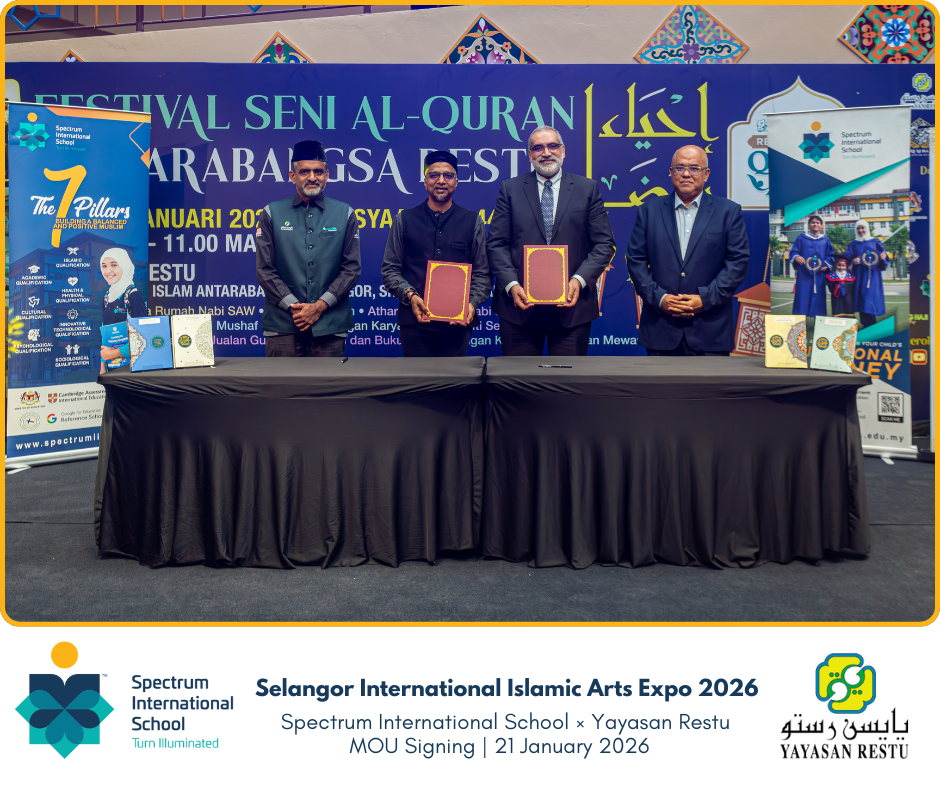
![[Maahad Tahfiz Negeri Pahang] Asia Youth International Model United Nations](https://mint-edm.sgp1.digitaloceanspaces.com/production/qKffTsfZisDxO4b6kcejusAA7mWWgL.jpg)
